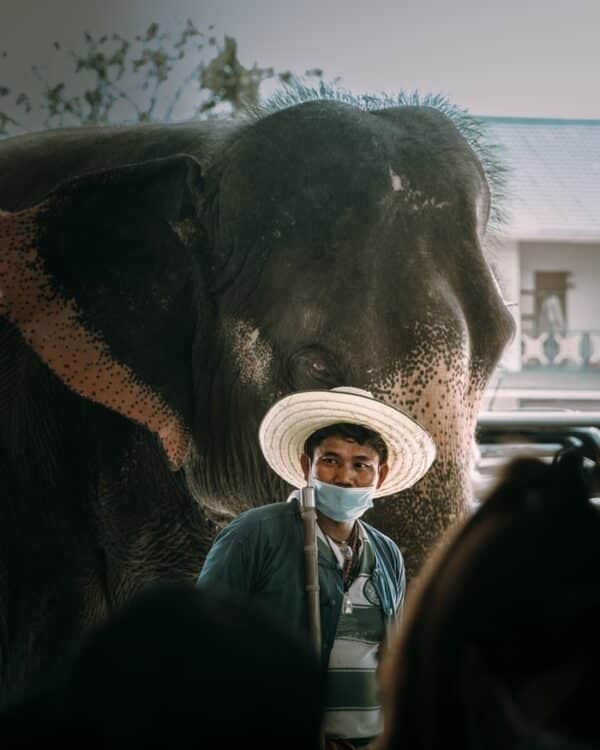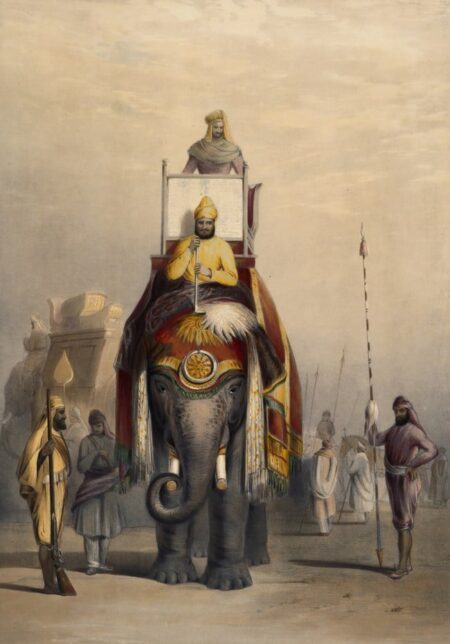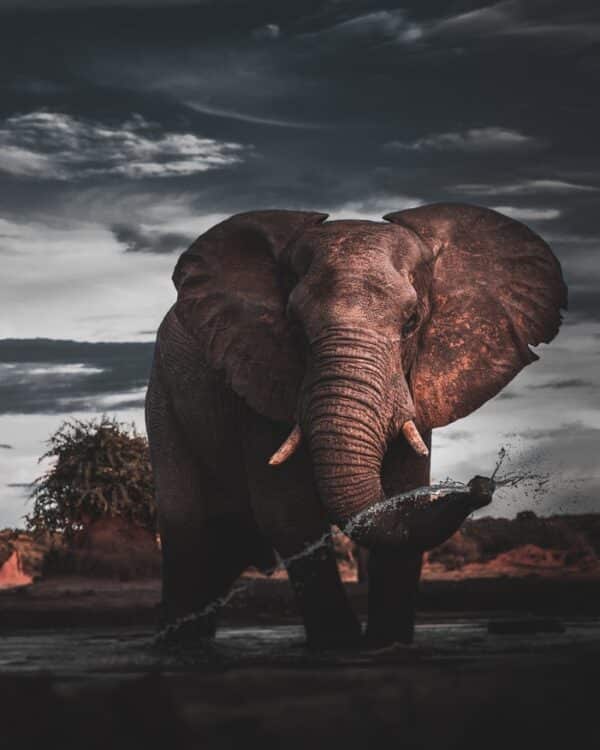The Shadow Elephant:
By Nadine Robert & Valerio Vidali
A Tender Illustrated Fable About What It Takes to Unblue Our Sorrows and Lighten the Load of Our Heaviest Emotions
In praise of that quiet, nonjudgmental place of permission where all healing begins.
A BOOK REVIEW BY MARIA POPOVA
This elemental truth is especially pronounced in a creative life — a life that requires of us what Virginia Woolf called, in her transcendent existential epiphany, the “shock-receiving capacity” that makes an artist an artist. And yet we go to extreme lengths to avoid receiving this shock of aliveness, to avoid fully feeling the portions of the spectrum we deem unhandsome or inconvenient, to dull our own sadnesses and divert others from theirs, then walk away when we fail. It is a human impulse, this urge to shoo the sadness away. It is also dehumanising, for only when we let the blues rush in with their full intensity do we become fully alive and awake to the dazzling spectrum of feeling that makes life worth living.
That is what Canadian author Nadine Robert and Italian artist Valerio Vidali explore with great subtlety and tenderness in The Shadow Elephant (public library).
The book opens with a lovely quote from The Little Prince, line-broken like a poem:

Caravaggio’s ‘remarkable’ Saint Francis of Assisi in Ecstasy, c1595.
© Wadsworth Atheneum Museum of Art
And when you are comforted
(we all eventually are)
you will be happy to have known me.
You will always be my friend.
Some said the elephant was gloomy.
Some said he was trying to hide his sadness.
Some said he preferred the shadows.

Caravaggio’s ‘remarkable’ Saint Francis of Assisi in Ecstasy, c1595.
© Wadsworth Atheneum Museum of Art

Not a smile. Not a sound. The elephant listened attentively, but remained in the shadows.
And then, one day, a tiny mouse out of breath emerges from another scale of existence and asks simply whether she can sit beside the elephant and rest a little. This small ask — this non-judgmental and unanxious presence with the elephant’s sadness — becomes the portal of his transformation.
The elephant is at first incredulous that the mouse isn’t there to distract him from his blues with some gimmick. But then she begins to tell him her own story — how she had gone out into the savannah to find her sister’s most precious possession, a golden key; how she had walked a whole day, only to become as lost as the key; how she is now terrified that she would find neither what she went looking for nor her way home.
Slowly, “drained of his tears,” the elephant rises, large and light, and hoists the mouse onto his back, offering to give her a ride home. Gently, without unease or demand, she invites him to tell her his own story.
The Shadow Elephant comes from my friends at the visionary Enchanted Lion Books, makers of uncommonly poetic and profound illustrated portals into the emotional universe — treasures like Cry, Heart, But Never Break, Big Wolf & Little Wolf, The Lion and the Bird, Bertolt, This Is a Poem That Heals Fish, and The Forest (also illustrated by Vidali).
Complement this particular treasure with The Heart and the Bottle — Oliver Jeffers’s tender illustrated fable of what we stand to lose when we deny our difficult emotions — then revisit a moving animated short film about depression and what it takes to recover the light of being.
Illustrations courtesy of Enchanted Lion Books; photographs by Maria Popova
